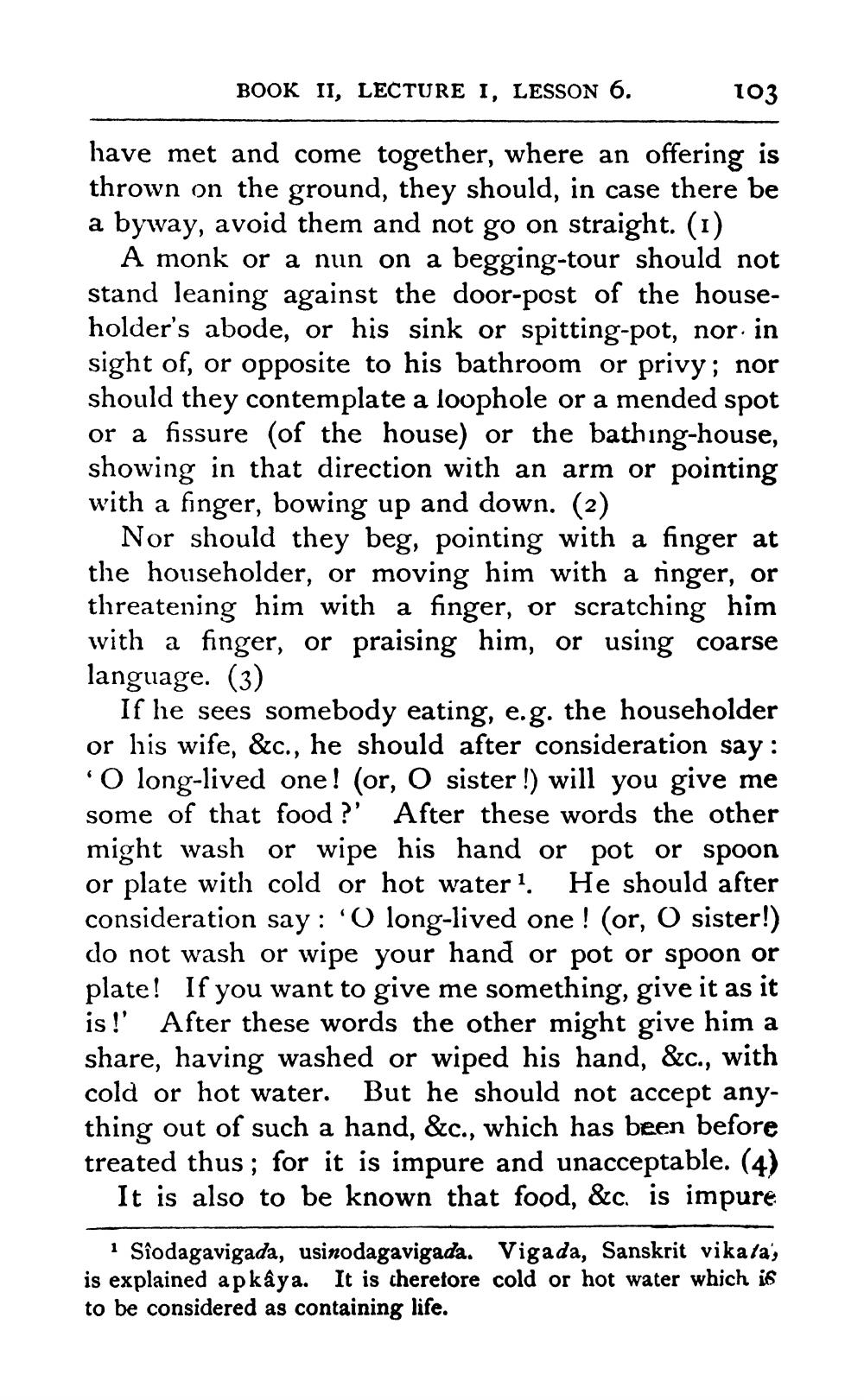________________
BOOK II, LECTURE 1, LESSON 6.
103
have met and come together, where an offering is thrown on the ground, they should, in case there be a byway, avoid them and not go on straight. (1)
A monk or a nun on a begging-tour should not stand leaning against the door-post of the householder's abode, or his sink or spitting-pot, nor in sight of, or opposite to his bathroom or privy; nor should they contemplate a loophole or a mended spot or a fissure (of the house) or the bathing-house, showing in that direction with an arm or pointing with a finger, bowing up and down. (2)
Nor should they beg, pointing with a finger at the householder, or moving him with a singer, or threatening him with a finger, or scratching him with a finger, or praising him, or using coarse language. (3)
If he sees somebody eating, e.g. the householder or his wife, &c., he should after consideration say:
O long-lived one! (or, O sister !) will you give me some of that food ?' After these words the other might wash or wipe his hand or pot or spoon or plate with cold or hot water 1. He should after consideration say: 'O long-lived one! (or, O sister!) do not wash or wipe your hand or pot or spoon or plate! If you want to give me something, give it as it is !' After these words the other might give him a share, having washed or wiped his hand, &c., with cold or hot water. But he should not accept anything out of such a hand, &c., which has been before treated thus; for it is impure and unacceptable. (4)
It is also to be known that food, &c. is impure
1 Sîodagavigada, usinodagavigada. Vigada, Sanskrit vikata, is explained apkâya. It is cheretore cold or hot water which is to be considered as containing life.




